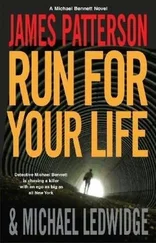Valeria Dubkovskaya - Nectar for Your Soul
Здесь есть возможность читать онлайн «Valeria Dubkovskaya - Nectar for Your Soul» — ознакомительный отрывок электронной книги совершенно бесплатно, а после прочтения отрывка купить полную версию. В некоторых случаях можно слушать аудио, скачать через торрент в формате fb2 и присутствует краткое содержание. ISBN: , Жанр: russian_contemporary, на английском языке. Описание произведения, (предисловие) а так же отзывы посетителей доступны на портале библиотеки ЛибКат.
- Название:Nectar for Your Soul
- Автор:
- Жанр:
- Год:неизвестен
- ISBN:9785449389619
- Рейтинг книги:5 / 5. Голосов: 1
-
Избранное:Добавить в избранное
- Отзывы:
-
Ваша оценка:
- 100
- 1
- 2
- 3
- 4
- 5
Nectar for Your Soul: краткое содержание, описание и аннотация
Предлагаем к чтению аннотацию, описание, краткое содержание или предисловие (зависит от того, что написал сам автор книги «Nectar for Your Soul»). Если вы не нашли необходимую информацию о книге — напишите в комментариях, мы постараемся отыскать её.
Nectar for Your Soul — читать онлайн ознакомительный отрывок
Ниже представлен текст книги, разбитый по страницам. Система сохранения места последней прочитанной страницы, позволяет с удобством читать онлайн бесплатно книгу «Nectar for Your Soul», без необходимости каждый раз заново искать на чём Вы остановились. Поставьте закладку, и сможете в любой момент перейти на страницу, на которой закончили чтение.
Интервал:
Закладка:
“Mrs. Lincoln’s loud, shrill voice,” wrote the late Senator Albert J. Beveridge, the most distinguished Lincoln authority of this generation—“Mrs Lincoln’s loud shrill voice could be heard across the street, and her incessant outbursts of wrath were audible to all who lived near the house. Frequently her anger was displayed by other means than words, and accounts of her violence are numerous and unimpeachable.”
“To illustrate: Mr. and Mrs. Lincoln, shortly after their marriage, lived with Mrs. Jacob Early – a doctor’s widow in Springfield who was forced to take in boarders.
“One morning Mr. and Mrs. Lincoln were having breakfast when Lincoln did something that aroused the fiery temper of his wife. What, no one remembers now. But Mrs Lincoln, in a rage, dashed a cup of hot coffee into her husband’s face. And she did it in front of the other boarders. Saying nothing, Lincoln sat there in humiliation and silence while Mrs. Early came with a wet towel and wiped off his face and clothes.
“Mrs. Lincoln’s jealousy was so foolish, so fierce, so incredible, that merely to read about some of the pathetic and disgraceful scenes she created in public – merely reading about them seventy-five years later makes one gasp with astonishment. She finally went insane; and perhaps the most charitable thing one can say about her is that her disposition was probably always affected by incipient insanity” [3].
You could say that Lincoln, like Napoleon, was simply unlucky in his marriage. But if we take a look at the research of sociologists, we see that 90% of people are “unlucky” in marriage. This distressing statistic is tied to the fragility of family unity in the world around us. On average, almost every other marriage in the world officially ends in divorce, and of the remaining half of marriages three fourths of wedded couples can be found in the category ranging from “habitually-indifferent” to “it can’t get any worse.” Those marriages in which it “can’t get any worse” retain their legal status for a number of reasons: lack of desire to divide possessions, complex legal procedures, fear of judgment on the part of society…
“Unplanned” or “unlucky” marriages don’t exist, and in the pages of this book it will be revealed how any marriage can be transformed into a happy or, at the very least, peaceful and comfortable marriage. But don’t rush to thumb through the pages in search of this information; our recipes work only if you study the contents of each chapter attentively and in their proper order.
Familial disarray is not the only reason for suffering. People suffer from injustice and the knowledge of their inability to combat that injustice, from fear of impending old age and from poverty, from pain after the loss of loved ones, from creative failure, and from loneliness and disease…
While researching the boundless theme of “Human Suffering,” we found deeply unhappy people in all historical eras and in all circles of society. Torturous suffering affects not only average people, but also kings, presidents of countries and corporations, top models, and the stars of Hollywood and show business.
The dream of many young women to be a supermodel seems appealing on the glossy covers of magazines. But the famous German beauty Claudia Schiffer revealed what goes on “behind the covers” in her interview for the magazine Fivetonine : “Top-models are going extinct like mammoths, their lives are completely thrown into disarray, they turn to alcohol, debauchery and narcotics” [4].
It also turns out that almost all famous artists and wealthy people are unhappy.
Nikolai Gogol(1809—1852), the famous Russian prose writer and dramatist, wrote in a letter to his friend: “Hanging or drowning appear to me as medicine or relief.”
Lev Tolstoy(1828—1910), the great Russian writer, author of novels known around the world such as War and Peace and Anna Karenina , admitted in a letter in 1878:
“I am hiding the rope in order to stop me from hanging myself from the rafters in my room at night when I’m alone. I don’t go hunting anymore, so as to avoid the temptation to shoot myself. It seems to me that my life has been a stupid farce.”
Gustave Flaubert(1821—1880), a French writer, complained in his journal: “Everything seems loathsome to me. I would hang myself with joy, but only pride prevents me…” [5].
Flaubert kept himself from suicide, but many of his famed peers were unable to do the same.
In the eyes of many readers the great American writer Ernest Hemingway(1899—1961) resembled the hero of his well-known story “The Old Man and the Sea,” whose slogan was “Do not surrender under any circumstances!” He was a Nobel laureate, succesful fisherman, first-class hunter, frequenter of pubs – in general, a real man: smart, strong and warmhearted. But this was all merely a mask, behind which hid a deeply suffering soul.
Hemingway repeatedly attempted to kill himself. Even on the way to the clinic, where he planned to get help for his depression, Hemingway tried to throw himself from an airplane, and then on the ground, after landing he tried to kill himself on the blades of a spinning propeller. Having returned home after treatment, Hemingway all the same went through with what he had earlier attempted and ended up shooting himself with his favorite rifle on July 2, 1961.
The writer’s granddaughter, the beautiful Margaux, was at one time the highest paid model in America and then a successful actress; but she too could not escape depression, fell into alcoholism and marked the thirty-fifth anniversary of her grandfather’s death in a most peculiar way, by ending her own life.
The tragic story of Hemingway immediately calls to mind the tragedy of another great American author, Jack London(1876—1916), who killed himself as the result of prolonged depression, exacerbated by alcoholism.
London also extolled the will to live; the heroes of his novels and stories, who were able to overcome any difficulty, became images of strength and masculinity for generations of readers around the world. At first the author himself resembled his heroes, enduring many hardships and blows of fate. On the surface he always appeared as a cheerful, energetic, strong-willed man and displayed unbelievable work ethic; in the course of fifteen years, he wrote so much that the full collection of his works constituted forty volumes!
But he too lived behind a mask his entire life, even suffering from depression in his youth.
Since childhood Jack had been subject to bouts of depression, but none of his many friends and comrades knew of this. He was always filled with barely contained energy and life, smiling and supporting others even in the most difficult moments of his life. At the age of 37, London became the highest paid author in the world and owner of an enormous tract of land, on which were planted 140,000 eucalyptus trees.
The great author was well acquainted with the many sides of life, but that which he saw during his time on earth stirred up in him first ennui, then deep depression. London began to drink, which was the beginning of the end. At first he became disillusioned with the people around him, then with his beloved eucalyptus trees and then with literature itself. Having driven himself into a corner Jack London ended his life by drinking a fatal dose of poison on November 22, 1916.
Noted Japanese writers, too, are not set apart by their optimism.
Mishima Yukio(1925—1970), the most famous Japanese writer of the twentieth century, killed himself by committing seppuku.
Kawabata Yasunari(1899—1972), Nobel laureate, killed himself by releasing poisonous gas into his study.
Читать дальшеИнтервал:
Закладка:
Похожие книги на «Nectar for Your Soul»
Представляем Вашему вниманию похожие книги на «Nectar for Your Soul» списком для выбора. Мы отобрали схожую по названию и смыслу литературу в надежде предоставить читателям больше вариантов отыскать новые, интересные, ещё непрочитанные произведения.
Обсуждение, отзывы о книге «Nectar for Your Soul» и просто собственные мнения читателей. Оставьте ваши комментарии, напишите, что Вы думаете о произведении, его смысле или главных героях. Укажите что конкретно понравилось, а что нет, и почему Вы так считаете.












